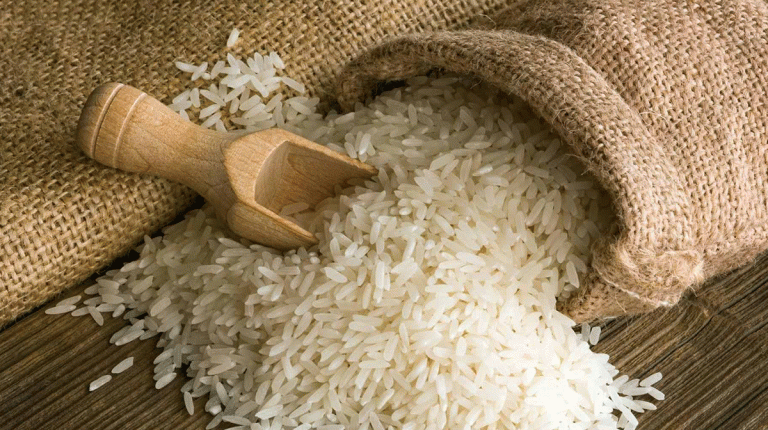Amid soaring food prices and an ongoing inflation, Egypt’s cabinet issued a decree penalising vendors who hoard or stock up on rice with at least one year in prison and a fine between EGP 100,000 and EGP 1 million in order to prevent any shortages of the “strategic commodity” in the market. The decree will remain in effect for three months.
To regulate the price of rice in the markets, the cabinet also set prices to be sold at no more than EGP 18.
The decree also orders all stakeholders in the value chain, including rice traders, producers, suppliers, distributors, and merchants, to notify the Ministry of Supply and Internal Trade of the types and quantities of rice they have and adhere to the rules specified by the ministry.
In an interview with local media last week, Minister of Supply and Internal Trade Ali Moselhi dismissed rumours Egypt is facing a rice shortage in the markets, adding that the speculations on the quantities of rice available have led to a hike in retail prices due to stockpiling and lack of adherence to the official prices in the market.
The minister added that Egypt’s production of rice is sufficient to cover 100 percent of its consumption, noting that Egypt produces 3.5 million tonnes of rice and consumes 3.2 million tonnes.
In a meeting with Prime Minister Mostafa Madbouly, Moselhi noted that the Minister of Supply and Internal Trade has received 140,000 tonnes of rice from farmers since the beginning of the harvest season in May, which can cover until mid-December. The ministry also plans to receive 1.5 million tonnes of long-grain rice from farmers during the current harvest season.
To meet local market needs, the Prime Minister also issued directives for extending the ban on rice exports.
Local media is also raising the alarm on farmers and vendors who have been hoarding rice commodities in an effort to increase the price in the black market.
Last month, popular Egyptian TV host, Amr Adib, tackled the issue during his talk show “El Hekaya” in an interview with Representative Magdi El-Waili, member of the Rice Division of the Grain Chamber of the Federation of Industries.
El-Waili noted that local supply has been heavily affected by local producers, as they have been intentionally reducing the quantities in the market to raise the price. He added that local producers are benefiting from the absence of strict regulations, and that producers are attempting to manipulate the market prices.
The repercussions of the Ukraine conflict have exacerbated Egypt’s financial crisis, which led to a significant rise in Egypt’s annual headline inflation, reaching 15.3 percent in September, up from eight percent in September 2021. This is the highest level of inflation since November 2018, when inflation rose to 15.7 percent.







Comments (2)
[…] Die Entscheidung stellte Einzelhändler, Landwirte und Fabrikbesitzer jedoch nicht zufrieden, da die Preise weder ihre Kosten widerspiegelten noch ihnen faire Gewinnspannen boten. Viele von ihnen stellten kurzerhand die Belieferung des Marktes mit Reis ein und zogen es vor, ihn stattdessen zu lagern. Bevor das Kabinett beschloss, seine Entscheidung rückgängig zu machen, war ägyptischer Reis nur noch in begrenztem Umfang zu den von der Regierung festgelegten Preisen erhältlich. In einigen Gewürzläden und kleinen Lebensmittelläden war er bereits teurer. […]
[…] Egypt Issues Decree to Regulate the Price and Quantities of Rice Egypt's Sisi, Turkey's Erdogan Shake Hands at Qatar World Cup […]